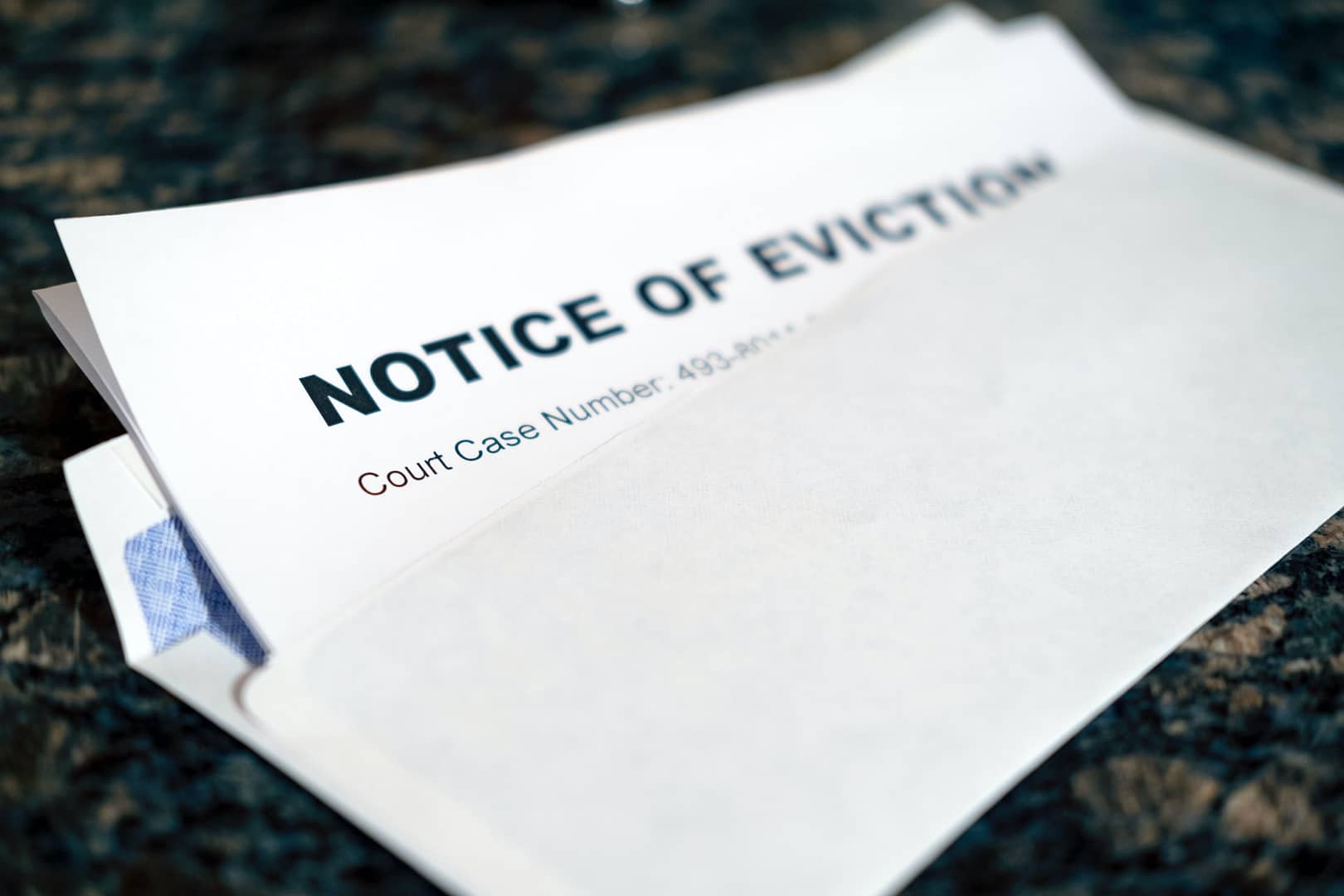In the world of renting and tenancy, the term “no fault eviction” often raises eyebrows and sparks questions. What exactly does it mean, and how does it affect tenants and landlords? If you’ve ever been curious about the ins and outs of this concept, you’re in the right place. In this article, we’ll delve into the depths of what a no fault eviction entails, how it operates in the UK, and whether a landlord can truly give notice without any reason. We will also walk you through how we at National Claims deal with housing disrepair.
Exploring the No Fault Eviction Phenomenon
Picture this: you’re comfortably settled into a cosy flat, surrounded by your favourite books and cherished trinkets. Life is flowing smoothly until one day, you receive a notice from your landlord stating that you need to vacate the premises. What’s shocking is that the notice provides no explicit reason for your eviction. This is where the enigmatic “no fault eviction” comes into play.
A no fault eviction, also known as a Section 21 eviction in the UK, refers to the process through which a landlord can legally request a tenant to leave a rented property without having to provide a specific reason for the eviction. While traditional evictions usually involve reasons such as rent arrears, property damage, or breaches of tenancy agreements, a no fault eviction stands out for its lack of a direct cause. This means that as a tenant, you could be asked to leave even if you’ve been punctual with your rent payments and have maintained the property impeccably.
Understanding the Renters Reform Bill: A Shift in Tenant-Landlord Dynamics
Amid the discussions surrounding no fault evictions and the intricacies of housing law, a significant development looms on the horizon: the Renters Reform Bill. This proposed legislation has the potential to reshape the relationship between tenants and landlords in the UK, introducing changes that could impact the way no fault evictions are conducted.
The Essence of the Renters Reform Bill
The Renters Reform Bill is a proposed piece of legislation aimed at enhancing tenant rights and promoting more secure and stable renting experiences. Among its various provisions, one that stands out is the intention to abolish no fault evictions. This potential shift could mark a substantial departure from the existing framework of housing law.
Currently, no fault evictions operate under the umbrella of Section 21 of the Housing Act 1988. The Renters Reform Bill seeks to repeal this section, making it illegal for landlords to evict tenants without a specific reason. This proposed change comes in response to concerns that no fault evictions can lead to insecurity and upheaval for tenants, particularly when they’ve been model tenants with no breaches of their agreements. These proposed changes were implemented in May 2023.
Making a Housing Disrepair Claim in the Context of No Fault Evictions
When a property is plagued by disrepair issues that affect its habitability, tenants may have the right to make a housing disrepair claim. This legal action allows tenants to seek repairs from their landlords and potentially receive compensation for the inconvenience and potential health hazards caused by the disrepair. Making such a claim can add an additional layer of complexity to the eviction process, as tenants might be concerned that pursuing their rights could sour their relationship with the landlord.
However, it’s crucial for tenants to understand that a no fault eviction notice does not automatically absolve landlords of their responsibility to maintain the property in a safe and habitable condition. If you find yourself facing both a no fault eviction and significant housing disrepair issues, seeking legal guidance can be essential in navigating this challenging situation.
Seeking help from us at National Claims will be a huge help as our experienced claims specialists will be able to look after your claim. They will also guide you through the claims process.

Conclusion
In the realm of housing, the concept of a no fault eviction stands as a unique and sometimes controversial phenomenon. The ability of landlords to request a tenant’s departure without providing a specific reason can create uncertainty and upheaval in the lives of those renting homes. While this process might appear puzzling, it’s important to recognise that it exists within a legal framework that balances the rights of tenants and landlords.
Whether you’re a tenant, a landlord, or simply an individual curious about the intricacies of housing law, remember that these concepts have real-world implications. Behind every eviction notice, every legal term, and every housing regulation, there are individuals striving to find a sense of stability and belonging in the places they call home. As the housing landscape continues to shift, staying informed about your rights and responsibilities remains an essential step in navigating the dynamic world of tenancy.
Contact us today to get started on your claim and find out more about how we deal with housing disrepair.
Click below to see why we are one of the most trusted claims management companies in the UK.

We’re proud of our excellent customer reviews
We thrive on delivering exceptional service and ensuring our clients’ satisfaction. Don’t just take our word for it. Check out some of our independent reviews to see what our clients have to say.
Excellent

This firm is excellent, they sorted out my car pay out and injury claim very fast, they always communicate with you all the time.

My accident case was dealt with confidence and with great result of the outcome, especially James kept me informed all the time.

I was very impressed at the way my inquiry was treated. I was listened to attentively and everything I needed to know was explained to me.






